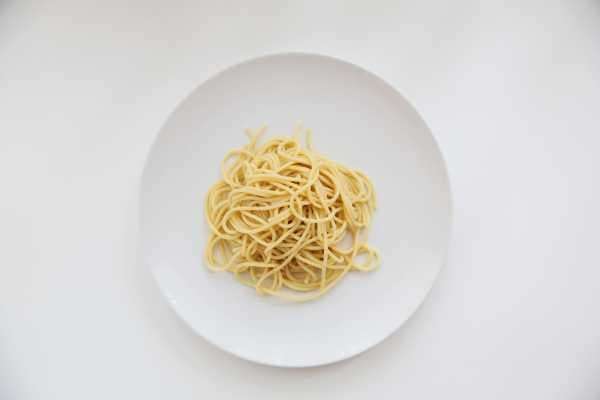
It’s probably the most contentious question in the dieting wars: How much do carbs really matter when it comes to weight loss?
On one side are a cadre of respected researchers; the journalist Gary Taubes; and Atkins, Zone, and keto diet devotees who passionately argue that if we could just pry ourselves away from the pasta, bagels, and cookies, our weight struggles would be over.
On the other side are equally reputable researchers and nutritionists who haven’t bought into the low-carb claims. They instead argue that most studies show low-carb diets aren’t better than any other diet when it comes to keeping weight off.
It’s a rich and lively debate. And on Thursday morning, Dr. Oz jumped into the fray, appearing on the Today show to highlight a new study showing that cutting carbs can help people “lose weight, not feel discomfort while doing it, and sustain it,” he said.
The study, led by researchers at Boston Children’s Hospital, appears in the journal BMJ and is arguably one of the most rigorous diet studies ever done. While it didn’t show exactly what Dr. Oz suggested, it is an important bit of evidence in this debate — and yet another reminder of the incredible difficulty of proving anything when it comes to nutrition.
The carbohydrate-insulin hypothesis
For the study, which cost $12 million to complete, researchers wanted to look at whether maintaining weight loss over 20 weeks would be easier on a low-carb, moderate-carb, or high-carb diet. But the question they were really testing is whether the kind of calories we eat, not just how many calories, matters when it comes to our body weight.
Some diet and nutrition researchers argue it’s the amount that matters, and if we focus on cutting overall calories, we’ll drop the pounds. Others believe calorie quality matters hugely.
The main scientific model in that latter camp is the ”carbohydrate-insulin hypothesis,” which Taubes, Harvard professor David Ludwig (an author on the new paper), University of California San Francisco’s Robert Lustig, and others have extensively promoted. It suggests that a diet heavy in carbohydrates (especially refined grains and sugars) leads to weight gain because of a specific mechanism: Carbs drive up insulin in the body, causing the body to hold on to fat and suppress calorie burn.
According to this hypothesis, to lose weight and keep it off, you need to reduce the number of carb calories you eat and replace them with fat calories. This is supposed to drive down insulin levels, ratchet up calorie burn, and help fat melt away.
The new paper is the best test of that hypothesis in “free-living” participants — people who aren’t confined to a hospital ward or metabolic chamber for the purposes of a study.
The new low-carb study, explained
The researchers, from Boston Children’s Hospital, Harvard Medical School, and other universities, recruited 234 people and first had them try to lose about 12 percent of their body weight over nine to 10 weeks.
They did this because we know that most people can lose weight on any kind of diet — but the hard part is keeping that weight off. And the researchers wanted to tease out whether a low-carb diet that might help people with that difficult second step by, as the carbohydrate-insulin model suggests, by having them burn extra calories.
Of the 234 people who started the study, 164 achieved the target weight loss — meaning they were ready to enter the next and most important step in the trial.
The remaining 164 study participants were then randomly assigned to high-carb (60 percent), moderate-carb (40 percent), and low-carb (20 percent) diets and followed for 20 weeks, during which time they were fed every snack and meal. Their diets were also carefully calibrated to make sure they were maintaining their new body weight.
At the 20-week point, the effects were quite remarkable: The fewer carbs a person ate, the more calories they burned — and, the logic goes, the easier it’d be to keep their weight off. So people on the low-carb diet burned more than 200 extra calories each day, while people on the moderate-carb diet burned about an extra 100 calories per day, and people on the high-carb diet didn’t burn any extra calories.
“This feeding study, as the longest and largest to date, provides support for the carbohydrate-insulin model and makes a credible case that all calories are not metabolically alike,” said one of the study authors, Harvard’s Ludwig. “These findings raise the possibility that a focus on carbohydrate restriction may work better for long-term weight loss maintenance than calorie restriction.”
Are these results applicable to most people?
Stanford researcher Christopher Gardner, who was not involved in the research, told me he thought it was an “elegant study,” with results worth paying attention to. “It shows how in the long run [a low-carb diet] can promote or inhibit the maintenance of that weight loss.”
But Gardner also noted that the findings may not yet be applicable to most people.
In most diet studies, where people aren’t fed every calorie by researchers, the low-carb diet performs about the same as other diets when it comes to weight loss. In other words, when you just ask people to stick to a low-carb diet for weight loss, they lose about the same amount of weight as people following higher-carb diets. This isn’t a knock on the study, but on the fact that researchers don’t yet know how to get people to follow any diet over the long term, unless they’re feeding them.
“If you prove a mechanism works but you can’t get people to do it,” Gardner added, “it won’t help.”
Importantly, other well-controlled tests of the low-carb insulin hypothesis, where people are put in metabolic chambers, have failed to show low-carb diets lead to a dramatic increase in calorie burn and weight loss.
But there are problems with those studies, too: They mainly looked at weight loss (not weight maintenance) and they weren’t run for as long as this new one. So it’s possible that extra calorie burn only really kicks in after 10 weeks, which is what the new study found.
Another methodological question about the new study
Other researchers deeply invested in the low-carb diet debate raised another question about the new research. It’s pretty nerdy, but interesting, so bear with me.
Kevin Hall, an obesity researcher at the National Institutes of Health who has studied low-carb diets, pointed out that the researchers used a technique called doubly labeled water to measure calorie burn before and throughout the study. This involves giving study participants a sample of water that contains (or is “labeled with”) forms of the elements deuterium and oxygen-18. Since they’re not normally found in the body, researchers can determine a person’s metabolic rate — how much energy they’re burning each day — by tracking how quickly they’re expelled through urine sampling.
Doubly labeled water is the gold-standard way of measuring energy expenditure in “free-living” subjects, i.e., people who aren’t in a metabolic chamber. But there’s a problem with the way it was used in this paper, Hall said.
When people have just lost weight, or their diets are shifting, doubly labeled water is less reliable. In their original study protocol — or statement of intent before the study was done — the researchers addressed that: They said they would use the measure taken before the run-in weight-loss phase as their baseline. People would be weight stable then, and Hall said, “That’s where doubly labeled water has been validated.”
But the researchers changed that endpoint because of an error, and instead made their baseline the beginning of the diet randomization — a change they disclosed in the study, to their credit.
The change, however, “introduced noise into that measurement,” Hall said. Because people had already lost weight and their diets were changing, doubly labeled water might be a less reliable way to estimate energy expenditure. “And they don’t report in the study what their data would look like if they used the pre-weight loss measurement.”
Hall took the pre-weight loss measurements, which were reported in the study, and ran the numbers himself for a presentation at the recent Obesity Week conference. He found the effect of calorie burn on the low-carb diet would have been much smaller had they used that measure as their baseline: fewer than 100 extra calories per day difference between the low-carb and high-carb diet groups, an effect that may not be statistically significant.
“It’s a tour de force [of science],” added Sam Klein, a metabolism and obesity researcher at Washington University in St. Louis. But he shared Hall’s concerns, and felt the study came up with results that seem inconsistent with what we know about energy expenditure — likely because of the methodological issue Hall raised. “Using this pre-weight loss baseline as the point of comparison shrinks the effect size,” Klein summed up.
Ludwig said these critiques were based on a misunderstanding, and that because this is a weight-loss maintenance study, using the pre-weight loss number as the baseline “would have been in conflict with that aim and introduced new forms of bias.”
“It’s fair for any scientist to raise questions, reanalyze data, and challenge interpretations,” Ludwig added. “In the interest of maximum transparency, we posted the full data set and statistical code so that anyone can conduct additional analyses.”
So should dieters stop eating pasta?
So back to the main question here: Should you avoid pasta if you want to maintain weight loss?
If you’re confused now, you’re right to be. Debates about diet have gotten fierce and nitpicky. We all come to them with our biases, there are many vested interests at play, and it’s hard to know what to believe. Nutrition studies — which are virtually impossible to do in ways that lead to bulletproof conclusions — also make easy targets: They’re easy to critique and interpret in different ways.
Outside of this new study, I haven’t found the evidence for the low-carb diet compelling. But maybe I am too biased by my love of pasta, bread, and cake — and personal experiences failing to restrict my carb intake — to fully embrace low-carb living. (In fact, my losing weight over the long term coincided with eating more carbs than ever before.)
In my years of reporting on diet and obesity, though, I know one thing to be true: The same diets can have drastically different results for different people, and people can’t keep weight off if they’re on a diet that feels impossible.
So the best diet, as people much wiser than me have already stated, is probably the one you can stick to. If that looks like a low-carb diet, great. Maybe you can reap extra energy-burn rewards, assuming the results of the study hold up. The researchers themselves called for more studies, and replication will be particularly important given their results seem to diverge with the rest of the evidence base.
Either way, Gardner said, “I have never seen anyone disagree on less added sugar and less refined grain. That’s an enormous part of the American diet. And you can’t go wrong eating a diet that’s lower in those nutrient-poor carbs.”
Sourse: vox.com






